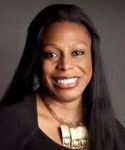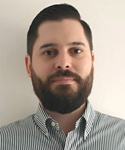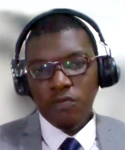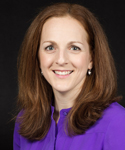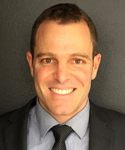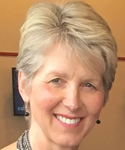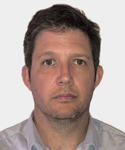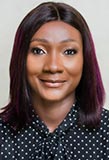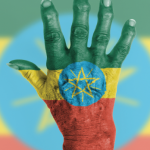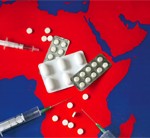 ACR CONVERGENCE 2021—On Nov. 3, the inaugural, virtual Global Rheumatology Summit brought together specialists from all over the world to share critical expertise on global health issues related to rheumatology. The summit, the first major event developed by the ACR’s Global Engagement Special Committee, emphasized the importance of collaboration and innovative solutions in fighting for equity in rheumatologic care worldwide.
ACR CONVERGENCE 2021—On Nov. 3, the inaugural, virtual Global Rheumatology Summit brought together specialists from all over the world to share critical expertise on global health issues related to rheumatology. The summit, the first major event developed by the ACR’s Global Engagement Special Committee, emphasized the importance of collaboration and innovative solutions in fighting for equity in rheumatologic care worldwide.
Keynote
The summit opened with a stirring keynote speech by Ayoade Alakija, MD, co-chair of the African Union’s Africa Vaccine Delivery Alliance, former chief humanitarian coordinator for Nigeria, founder of the Emergency Coordination Center in Nigeria and a special advisor to the G20. She spoke movingly about how we must bridge divides and foster dialogue to help achieve worldwide health equity.
Dr. Alakija underscored inequities in global care that have been highlighted and exacerbated by the COVID-19 pandemic. She also drew parallels to similar issues in rheumatologic care worldwide, because the same regions are those most profoundly challenged in terms of adequate access to treatment for rheumatic diseases.
Noting that different manifestations of health inequity are deeply connected, she asserted that we must achieve greater equity with respect to the COVID-19 pandemic before we can make improvements in equitable rheumatologic care worldwide. Arguing that the current global health infrastructure is broken, she urged listeners to engage more in the broader geopolitical environment.
COVID-19 Global Inequities
Dr. Alakija laid out some of the glaring inequities between the way COVID-19 has affected lower income areas, such as Africa, and areas with greater resources.
One important difference has been the lack of testing for COVID-19 available in poorer regions. She pointed out that in Nigeria, with a population of 200 million people, roughly 2.5 million tests have been performed. “Testing is for the elite, and testing is only done when people have to travel,” says Dr. Alakija. In contrast, roughly two tests have been performed for every member of the U.S. population.
Treatment availability is another stark area of contrast. In much of Africa, treatment for COVID-19 is extremely limited. “Many people are dying for lack of a breath,” Dr. Alakija said. “Surely it proves that the very essence of what we do is broken when we cannot get the basics of oxygen in Africa, yet people are popping into clinics for monoclonal antibody shots in the U.S.”
Dr. Alakija also spoke forcefully about the lack of vaccine availability in low-income areas of the world. “As the world has rolled out these vaccines, underlying inequities are being exacerbated and exemplified by the haves and have-nots, leading to a world where continents like Africa will be left behind,” she said.
She noted that countries in the European Union have received a much higher percentage of the COVID-19 vaccines they requested than have countries in the African Union. As of October 2021, Africa has fully vaccinated just 6% of its population, but rates are lower than that in some African countries.1 Moreover, adding up the single-dose vaccinations given out by 18 different African nations, the total is less than the number of booster shots that North America, Europe and Israel have already administered.
According to Dr. Alakija, Europe has reported a 60% increase in the death rate related to COVID-19. In contrast, the African Union has reported an 800% increase. However, she said these numbers may not fully represent the true level of inequity because the level of testing in Africa is so low, and many deaths due to COVID-19 have, therefore, probably not been counted.
Tackling Inequalities
As Dr. Alakija drew attention to these stark inequalities, she underscored the need to question existing power structures and ultimately change the total global health infrastructure to promote equity for all. “As a global health community, we have to find a way forward for health equity—not just in this crisis, but also going forward. … This is a call to action and a challenge for you to see what you can do, even in your own field,” she said.
Dr. Alakija urged listeners to be deliberate about inclusivity, arguing that more inclusivity is needed on a worldwide scale. It is only by holding dialogues with those from the Global South (i.e., Latin America, Asia, Africa and Oceania) and hearing from them about their most pressing issues that we can begin to make substantive progress on these problems.
Individuals and small institutions should also make inclusivity a priority. “Be deliberate about inviting in the voices of those that you’ve previously not heard,” said Dr. Alakija.
Dr. Alakija also urged listeners to get involved in the geopolitical space. She noted how important it is to have people who can speak knowledgeably about both geopolitics and medicine, people who can serve as translators across domains. “We need to be more connected to the practicalities of what we do,” she said.
Another key is self-education. Dr. Alakija urged listeners to get outside their comfort zone and educate themselves on the inequities and inequalities that exist worldwide.
From there, Dr. Alakija recommended banding together, forming coalitions with people who share concerns and goals related to justice and equity. “Once you have a critical mass of people pushing forward, it becomes a lot easier,” she said. “Find courage because it really needs courage to address global health equity.”
Dr. Alakija also had a strong message for younger ACR members, urging them not to wait for others’ leadership if they see an inequality at their institution or elsewhere that should be addressed. “It is only by each one in our corners speaking out that we will build this critical mass. That is how we are going to build these bridges, that is how we are going to foster dialogue and that is how we are going to achieve health equity.”
‘As a global health community, we have to find a way forward for health equity—not just in this [COVID-19] crisis, but also going forward. … This is a call to action & a challenge for you to see what you can do.’ —Dr. Alakija
Unmet Needs in Rheumatology
At sessions throughout the day, many of the presenters returned to some of the key themes of access to healthcare, health equity and collaboration introduced by Dr. Alakija.
Worldwide, access to rheumatologic care and treatment poses a huge challenge, especially in lower income countries, where the unmet needs are greatest. Globally, millions suffer from rheumatologic and musculoskeletal health conditions, and the majority live in the most populous countries of Asia, Africa and South America.2 But disparities also exist in mid- to higher income countries, particularly in rural areas, where people may lack access to adequate diagnosis and treatment.
The workforce deficits needed to fully address pediatric rheumatology are particularly acute. Data from 2011 indicated the total international pediatric rheumatology workforce is at 12% of demand, with the U.S. possessing 40% of the total group.3 Up to 7 million children suffer from rheumatic disease around the globe, with 78% living in Africa or Asia.3
Global Burden of Disease
Public health professionals and policy makers don’t always understand the true burden of disease from rheumatic conditions, and often don’t make them a public health priority.
As part of the Global Researcher Spotlight session, Christopher Murray, MD, DPhil, chair of health metrics science and director of the Institute for Health Metrics and Evaluation at the University of Washington, Seattle, highlighted an important aspect of this. In his presentation, he shared insights from the Global Burden of Disease Study, an effort to systematically quantify the magnitude of health loss around the world.4
We’ve made significant progress over the past few decades reducing disparities in terms of childhood mortality, maternal mortality and deaths from infectious diseases, such as tuberculosis, AIDS and malaria, noted Dr. Murray. This reflects the priorities in the United Nations’ millennium development agenda, set out to help address the needs of the world’s poor. However, less progress has been made in terms of non-communicable diseases.4
He also pointed out that the global burden of disease is shifting, with the relative impact of premature mortality decreasing and the impact of disability increasing. This is pertinent to many areas of rheumatology, in which early diagnosis and adequate treatment can radically reduce an individual’s lifetime disability burden. But, according to Dr. Murray, many public health officials do not seem to be aware of this shift.
“Health systems really need to adapt to the rise of [non-communicable diseases] and disabilities,” said Dr. Murray. “There has been a really profound shift—particularly in the middle [sociodemographic index] countries.
“But health systems don’t seem to keep up with the epidemiological shift. We’re seeing this problem, especially in the middle [sociodemographic index countries], where progress for delivering interventions for non-communicable diseases is much slower than the changes that you see,” he added.
Young Leaders
At another session, the Future of Rheumatology Around the Globe, several early career rheumatologists, representing the ACR, the Pan-American League of Associations for Rheumatology (PANLAR), the European Alliance of Associations for Rheumatology (EULAR), the African League Against Rheumatism (AFLAR) and the Asia Pacific League of Associations for Rheumatology (APLAR), shared their perspectives about some of the most important challenges facing the rheumatology community, including many issues surrounding access to care.
Sebastián Herrera Uribe, MD, an associate professor of rheumatology at Universidad CES in Medellin, Colombia, noted that although rheumatologists and treatments could be found in his city, most rural communities lacked access to such care and may only be served by a nurse practitioner. Telemedicine can be a partial strategy to help deliver care to these areas, but it isn’t practical in every situation, he noted.
“We have to engage with local governments and local healthcare policy to bring rheumatology to the forefront,” Dr. Uribe added. “If we don’t participate and don’t do our advocacy work and don’t do the education part, both for our communities and for our governments, nobody will. And probably people who aren’t knowledgeable about rheumatology will make the decisions.”
The number of rheumatologists available is also a key challenge in his region, said Uyiekpen Ima-Edomwonyi, MD, a consultant rheumatologist at Lagos University Teaching Hospital, Nigeria. The rheumatologists who are available may become overburdened and burned out, he remarked. He emphasized the need to encourage more medical professionals to go into rheumatology while also aiding the support specialties to better assist in patient education and overall care.
Dr. Ima-Edomwonyi also reiterated the need to bring rheumatology into the national discourse in our respective countries. For example, in Nigeria and other African nations, some have advocated to get medications commonly used for rheumatology added to their national drug pharmacies. “Once we have a critical mass of people advocating to the government, that begins to create an impact in terms of being able to shift resources,” he said.
Another commentator, Laura Cappelli, MD, a rheumatologist and an assistant professor of medicine at Johns Hopkins University, Baltimore, pointed out that governments are not the only important stakeholders for improving access to care, particularly in terms of medications. “I think, [in addition to government], we should equally be working with our industry, with private partners, with non-governmental organizations to increase access to rheumatology medication worldwide,” she said.
Dr. Cappelli also explained that excess and often ineffective spending in U.S. healthcare can drive up drug prices, which can affect pricing and distribution around the world. “We have a lot to fix in our own healthcare system that could benefit our patients but also potentially … expand access to rheumatologic care abroad,” she said.
Another participant, Anthony Sammel, PhD, MBBS, a senior conjoint lecturer at the University of New South Wales, Sydney, pointed out the role of rheumatology organizations, such as the ACR and the Australian Rheumatology Association (ARA), in lobbying on behalf of patients.
Dr. Sammel speculated, “Maybe as a worldwide group we need to have a rheumatology body … which can then discuss with the big pharmaceutical companies the need for access; maybe we need to advocate as a worldwide group, and that might be able to provide some more pressure to provide better equity around the globe.”
Projects to Reduce Disparities
Several presenters shared detailed information about specific projects to help address some of these disparities and increase access to rheumatologic care worldwide.
For example, as part of the Innovative Solutions session, Helen Foster, MD, shared experiences and plans of the Paediatric Global Musculoskeletal Task Force, which she co-chairs.2,5 The task force was first set up as part of the Global Alliance for Musculoskeletal Health in 2017 and has since joined forces with the Paediatric Rheumatology European Society (PReS).
Dr. Foster spoke of the “urgent need to raise awareness about musculoskeletal conditions and the fact that many of these conditions are treatable, and that disability is often preventable with early diagnosis and prompt access to the right care.”
Echoing key areas of concern more broadly in rheumatology, the task force aims to increase awareness of unmet needs, prevent morbidity from these illnesses and promote better access to treatment. The task force has collaborated with many charities and patient organizations around the world on many different initiatives related to disease awareness, advocacy, policy and education, as well as different webinar programs and virtual meetings that provide an opportunity to engage healthcare workers who are not specialists.
Like several others at the conference, Dr. Foster pointed out that such an approach is a way to reach a large number of people at low cost, and that innovations and cultural changes in technology use due to COVID-19 may be harnessed to positive effect.
Many of these free online activities rely on another resource that some task force members helped develop: Paediatric Musculoskeletal Matters (PMM), a free e-resource and online learning tool on pediatric musculoskeletal curricula designed to serve countries where specialist care is lacking.
“We are never going to get enough pediatric [musculoskeletal] specialists,” said Dr. Foster. “We have to reach out to the existing workforce and help them help us. These individuals can help raise awareness about suspected diagnoses, help initiate investigations and care.”
Currently the task force is developing a novel advocacy campaign (RUN; Rheumatology Unmet Needs) centered on patient stories. This will focus on the general public but also healthcare professionals and healthcare planners, using industry for sponsorship.
The campaign will help fund SPRINT (Spreading Rheumatology Internationally Together) to help build the workforce capacity. This program will expand on previous work with free remote education targeting non-expert members of the medical team, with a priority of reaching low-resource settings. These campaigns will be released over the next 12–18 months.
The Pediatric Rheumatologic Workforce
Other projects tackled similar concerns of building the overall workforce through education. Chris Scott, MBChb, head of the Division of Paediatric Rheumatology at the University of Cape Town, South Africa, and another co-chair of the Paediatric Global Musculoskeletal Task Force, shared details of a similar project.
Dr. Scott explained that a vicious cycle can occur with lack of access to care. A lack of access leads to missed diagnoses and lack of rheumatology research. This can lead to a false perception of rarity, which leads to further de-prioritization of policies promoting rheumatology education and services, causing further shortages in the workforce and poorer outcomes.
Dr. Scott’s group has been working to expand nurse training of musculoskeletal diseases in South Africa. He noted that nurses make up a large majority of the initial healthcare response in South Africa and resource poor countries. As participants in the African Paediatric Fellowship Programme, he and others at his institution have helped train many general pediatricians and nurses in pediatric rheumatology.
Moving Forward
Although this initial Global Rheumatolog Summit highlighted some promising areas for innovation and improvement, much work clearly needs to be done to bring true equity to rheumatologic care worldwide. It will take thoughtful work by many individuals in different areas, using dialogue, inclusion, persistence and courage.
As Dr. Alakija pointed out in her initial presentation, “It is up to you, up to me and all the rest of us; only together are we going to bridge these divides. … It is only working together as a global community that we are going to achieve health equity.”
Ruth Jessen Hickman, MD, is a graduate of the Indiana University School of Medicine. She is a freelance medical and science writer living in Bloomington, Ind.
References
- Less than 10% of African countries to hit key COVID-19 vaccination goal. World Health Organization. 2021 Oct 28.
- Foster HE, Scott C, Tiderius CJ, Dobbs MB. The paediatric global musculoskeletal task force—‘towards better MSK health for all.’ Pediatr Rheumatol Online J. 2020 Jul 14;18(1):60.
- Henrickson M. Policy challenges for the pediatric rheumatology workforce: Part III. The international situation. Pediatr Rheumatol Online J. 2011 Sep 12;9:26.
- GBD 2019 Viewpoint Collaborators. Five insights from the Global Burden of Disease Study 2019. Lancet. 2020 Oct 17;396(10258):1135–1159.
- Foster HE, Scott C, Tiderius CJ, et al. Improving musculoskeletal health for children and young people—A ‘call to action.’ Best Pract Res Clin Rheumatol. 2020 Oct;34(5):101566.
ACR Distinguished International Rheumatology Professional Award
The opening session of the Global Rheumatology Summit included the presentation by ACR President David Karp, MD, PhD, of the first ACR Distinguished International Rheumatology Professional Award to Ida Dzifa Dey, MBChB, FWACP, FGCPS, MSC, SCE-RCPMD.
Dr. Dey, a rheumatologist at Korle Bu Teaching Hospital in Accra, Ghana, established the country’s first rheumatology clinic in 2009 at Korle Bu. “The need was there—the patients were there,” said Dr. Dey. “But nobody was recognizing their disease; nobody was treating them properly. Then when they knew that the services were available, an avalanche of cases came in.”
In 2012, Dr. Dey also set up The Rheumatology Initiative (TRI), a nonprofit seeking to increase awareness of rheumatic conditions, improve patient outcomes and help prioritize rheumatology on Ghana’s health agenda.
